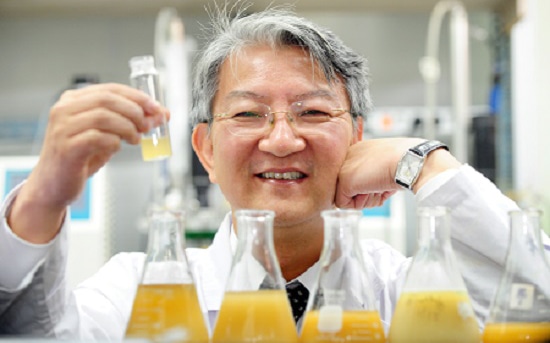Jan 17 2019
KAIST researchers have successfully completed a comprehensive metabolic map that helps in synthesizing numerous industrial bio-based chemicals.
 Distinguished Professor Sang Yup Lee of the Department of Chemical and Biomolecular Engineering at KAIST (Image credit: KAIST)
Distinguished Professor Sang Yup Lee of the Department of Chemical and Biomolecular Engineering at KAIST (Image credit: KAIST)
This metabolic map is capable of charting all available pathways and strategies of chemical reactions that enable the production of many different industrial bio-based chemicals.
The research team was headed by Distinguished Professor Sang Yup Lee, who, in addition to producing high-quality metabolic engineering and systems engineering research for many years, has also created the hallmark chemicals map following seven years of research.
A comprehensive analysis of metabolic engineering was presented by the researchers for the production of a variety of materials, fuels, and industrial chemicals. The researchers surveyed the present trends in the bio-based production of chemicals in industrial biotechnology, and then meticulously analyzed the existing status of industrial chemicals synthesized through biological and/or chemical reactions.
It is believed that this comprehensive map will act as a blueprint for the intuitive and visual inspection of chemical and/or biological reactions for the production of interest from renewable resources. An accompanying poster was also compiled by the team to visually present the chemicals’ synthetic pathways in the context of their microbial metabolism.
Metabolic engineering has turned out to be more powerful in tackling various environmental issues, including climate change and limited fossil resources, and as a result, the number of microbially synthesized chemicals utilizing biomass as a carbon source has increased considerably. Moreover, the sustainable production of industrial materials and chemicals has been extensively studied using renewable nonfood biomass as raw materials and using micro-organisms as cell factories for alternative petroleum. The development of these microbes has progressively become more effective and efficient with the aid of metabolic engineering—an engineering practice that creates a desired metabolite by using the metabolism of living organisms.
Thanks to the development of systems metabolic engineering —the incorporation of metabolic engineering with strategies and tools from evolutionary engineering, synthetic biology, and systems biology —the rate at which microorganisms are being designed has reached an unrivaled pace.
To assess the present state at which a huge portfolio of industrial chemicals can be produced by metabolically engineered microorganisms, the researchers conducted a detailed review of the literature, followed by mapping them out on a poster. This ensuing poster, called the bio-based chemicals map, describes synthetic pathways for industrial chemicals consisting of chemical and/or biological reactions.
Industrial chemicals, as well as their manufacturing pathways, are presented in the context of central carbon metabolic pathways because these major metabolites act as precursors for the chemicals to be synthesized. The biochemical map, thus obtained, enables the detection and examination of optimal synthetic routes for a specified industrial chemical. Apart from the poster, the authors have also compiled a series of chemicals that have been effectively synthesized with the help of microorganisms as well as a list of the corresponding companies manufacturing them at the commercial scale. This comprehensive review of the literature and the associated analytical summary will serve as a crucial resource for investigators interested in producing chemicals from renewable biomass sources.
Microorganisms that are metabolically engineered have already made a significant contribution toward the sustainable development of chemicals utilizing renewable resources. Professor Lee informed that he wanted a thorough survey of the present state and capacity of the production of bio-based chemicals.
We are so excited that this review and poster will expand further discussion on the production of important chemicals through engineered micro-organisms and also combined biological and chemical means in a more sustainable manner.
Sang Yup Lee, Distinguished Professor¸ Department of Chemical and Biomolecular Engineering, KAIST
The study was supported by the Technology Development Program to Solve Climate Changes on Systems Metabolic Engineering for Biofineries from the Ministry of Science and ICT through the National Research Foundation of Korea.